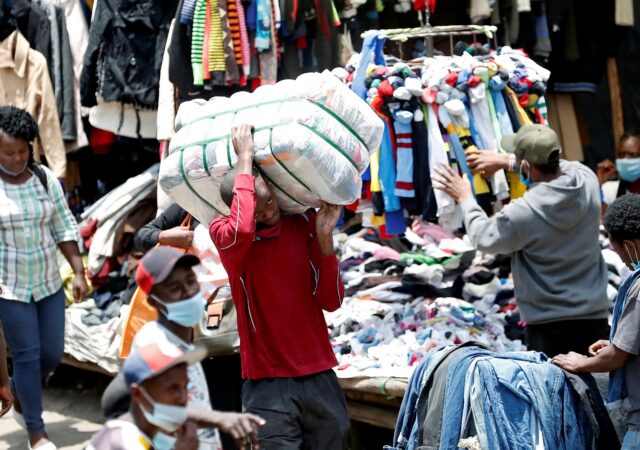The decline of species within protected areas have prompted the need to pursue species conservation and protection with the consideration of both the protected areas and the surrounding communities. This informed the decision of the Nigerian Conservation Foundation (NCF) to partner with the National Park Service on a series of engagement to enhance the protection of Kainji Lake National Park (KLNP) and the population of lions and leopards within the park.
To facilitate this, a workshop held on Thursday, 23rd June 2022, titled “Stakeholders Engagement to Identify and Design Solutions for Restricted Ranching to Reduce Livestock Grazing in Kainji Lake National Park” in New Bussa, Niger State. This engagement session is a series of activities under the “Emergency Rescue of Nigeria’s Last Populations of West African Wildcats – Lion Panthera leo and Leopard Panthera pardus” project supported by the IUCN Save our Species and funded by the European Union.
The stakeholders’ workshop was organised to identify the challenges and solutions to sustainable livelihoods practices in communities around the park. The Director General of NCF, represented by Species Lead for NCF, Dr. Stella Egbe emphasised NCF’s delight in putting together a series of activities to improve the awareness and capacity of stakeholders within and around the park.
“The Nigerian Conservation Foundation is delighted to carry out this project which is part of a series of activities being implemented in Kainji Lake National Park. We have planned a series of activities aimed at improving capacity of stakeholders which mainly comprise communities surrounding the park.” She said.
The Conservator of Park, CP Jimoh Oladosu who was also present highlighted the importance of the meeting in resolving regular conflicts encountered with surrounding communities. He said, “This meeting will help us resolve some regular conflicts that occur between the conservation park and host communities, especially the support zones, because there are serious controversies ongoing, given the aim & objective of the initiative, which is to improve and conserve little population of the threatened lion species.”
In the build-up to the workshop, some sustainability challenges within the communities were identified through a community entry/awareness exercise. However, the interactive session created an avenue to go beyond identifying the challenges to proffering solutions for possible implementations. These challenges include over grazing, unsustainable farming, illegal logging, poaching and so on. These activities are often associated with the encroachment of the park habitat and often impact the species population within the park. Some of the solutions identified include restricted ranching, sustainable alternative livelihoods, improved education and awareness, improved farming practices and so on.
Alhaji Yusuf Dauda, who represented the Borgu Emirate Council said “We don’t need a prophet to tell us that we have a problem with this God’s given forest, natural resources for us people of Borgu emirate. Our farming is not sustainable right from time immemorial. Our land does not need fertiliser. We only need to think of future.”
Other major stakeholders present include representatives from the KLNP management; the Local Government Council represented by the Vice Chairman of Borgu LGA, Hon. Adamu Usman Dodo, the Miyetti Allah Cattle Rearers Association, the Farmers Association, Hunters Association, Women Association, Youth Associations, and the media among others.







It’s actually very comnplex in this actfive life too listen nrws on Television,
so I only use web foor that purpose, annd get tthe newest information.
I have been browsing online more than 3 hlurs today, yet I never fouhd anyy interesting artricle llike yours.
It’s pretty worth enough foor me. Personally, if alll sitee osners andd bloggers made good content
ass you did, thee web wil be much more useful than evewr before.